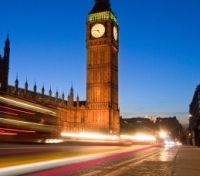

The final report on the Grenfell Tower fire, released on 4 September 2024, attributes the tragedy to decades of Government failures and systematic dishonesty by companies involved in the building’s refurbishment.
The report highlights that the fire, which claimed 72 lives in June 2017, was exacerbated by non-compliant cladding and inadequate safety measures.
Sir Martin Moore-Bick, the chair of the inquiry, found that three firms – Arconic, Kingspan and Celotex – "engaged in deliberate and sustained strategies to … mislead the market".
He also found the architects Studio E, the builders Rydon and Harley Facades and the Royal Borough of Kensington and Chelsea’s building control department all bore responsibility for the blaze.
Studio E demonstrated "a cavalier attitude to the regulations affecting fire safety". Its failure to recognise that the plastic-filled panels on the high-rise tower were dangerous was not the action of a "reasonably competent architect" and it "bears a very significant degree of responsibility for the disaster", the inquiry found.
Key findings
The report revealed a number of key findings:
Government Failures
The report criticises successive Governments for neglecting Fire Safety Regulations and failing to enforce existing laws. It points out that cost-cutting measures and deregulation contributed significantly to the disaster.
The Government also ignored multiple warnings about the fire risks associated with high-rise buildings.
Experts sounded an alarm about cladding fires in 1992 after the 11-storey Knowsley Heights tower caught alight in Huyton, Merseyside. Seven years later there was another fire at Garnock Court in Irvine, North Ayrshire, and a committee of MPs repeated the concerns.
But the flammable cladding wasn’t banned because it had already been classed as meeting a British Safety Standard. Safety tests in 2001 revealed the type of cladding of concern "burned violently". The results were kept confidential and the Government did not tighten any rules.
Eight years later in 2009, six people died in a fire at Lakanal House, a high rise in South London. The coroner at their inquests asked for a review of Building Regulations but, the inquiry found, this was "not treated with any sense of urgency."
Red tape challenge
In 2010 the coalition Government headed by David Cameron was on a drive to cut legislation - which it considered to be "red tape" holding back British enterprise. The inquiry found this policy so "dominated" thinking in Government that "even matters affecting the safety of life were ignored, delayed or disregarded".
The inquiry found that the then housing department was "poorly run" and fire safety had been left in the hands of a relatively junior official.
Corporate Dishonesty
Companies involved in the refurbishment are accused of prioritising profits over the safety of residents. The report details how these companies misled authorities about the safety of materials used, particularly the cladding.
The inquiry found that the cladding system installed was highly flammable and did not meet safety standards.
Systemic Issues
The inquiry underscores systemic issues within the construction and housing sectors, including inadequate oversight and accountability, and a culture of non-compliance with Safety Regulations. It calls for comprehensive reforms to prevent such tragedies in the future.
The report also notes that the distrust and anger of Grenfell Tower landlords towards residents led to serious failures in observing basic responsibilities.
London Fire Brigade
The London Fire Brigade’s failure to prepare for a cladding fire – even after a similar prior incidents – was also criticised in the inquiry. The firefighters who went into Grenfell had not been prepared for what they had to battle through to try to save lives. Senior officers had been complacent and lacked the skills to recognise the problems and correct them.
Recommendations
Stricter legislation and enforcement
The report calls for stricter enforcement of Building Regulations and improved fire safety standards. It emphasises the need for greater transparency and accountability within the construction industry.
It recommends regular inspections and audits to ensure compliance with safety standards.
A new regulator for construction
The report recommends establishing a single regulator for the construction industry. This regulator would ensure that construction products meet legal requirements, industry standards, and certifications, as well as oversee building control. Additionally, manufacturers would be required to provide a complete testing history of their products.
A new secretary of state for fire safety
The report suggests consolidating fire safety responsibilities under a single department led by one secretary of state, as currently, these duties are spread across multiple departments. It also recommends appointing a "chief construction adviser" to offer guidance on construction industry matters.
Support for victims and families
The report emphasises the need for ongoing support for the victims and families affected by the Grenfell Tower fire. It calls for measures to ensure that their voices are heard and their needs are addressed.
Comprehensive reforms
The report suggests comprehensive reforms to prevent similar tragedies in the future. This includes a review of existing Safety Regulations and the implementation of new, more stringent standards.
The release of this report has prompted calls for immediate action to implement its recommendations and ensure justice for the victims and their families.
What happens next?
Prime Minister Keir Starmer offered an apology in the Commons "on behalf of the British state" to victims of Grenfell Tower fire and their families, and has called for a "day of justice". He said letters would be sent as a first step towards blocking the companies responsible from public contracts.
The Government will now respond to the recommendations made by Moore-Bick and the inquiry panel to prevent a repeat of the disaster.
A major police inquiry is currently under way. Police and prosecutors had been waiting for the inquiry’s conclusions before considering charges over potential crimes including corporate manslaughter, fraud and misconduct in public office. Any trials are not expected until at least 2027.
For more information see the: